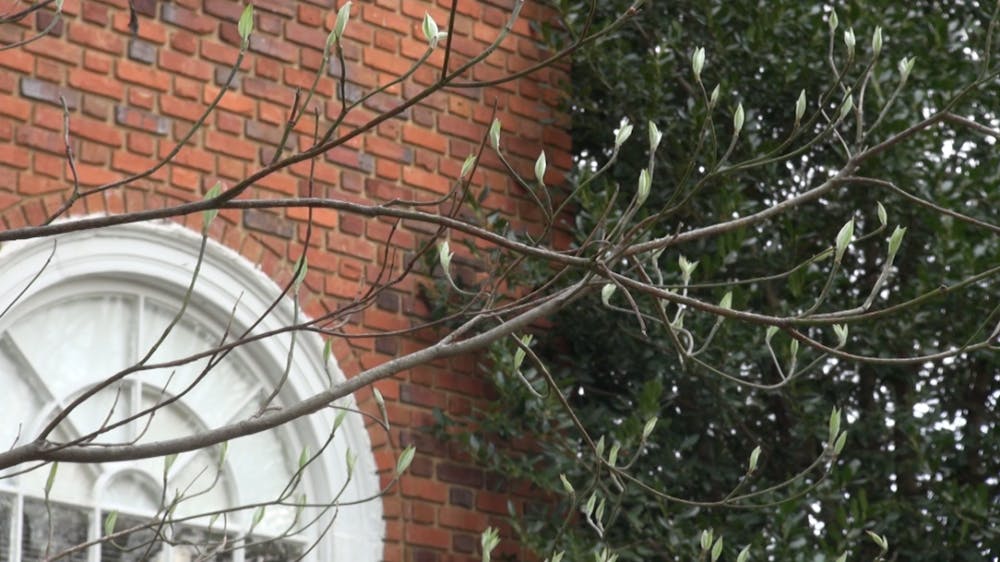With each passing week, the official start to spring gets closer and closer. While the first day of spring is for March 20, signs of warmer and longer days have already arrived to the area.
Seemingly one thing seems to get in the way every year: pollen. The very word could summon red eyes and a symphony of sniffles. Nasal allergies affect more than 50 million Americans.
For definition's sake, pollen, according to Burlington allergist Dr. Meg Whelan, is the male reproductive part of a seed which helps with plant reproduction. Pollen is most prevalent from February to May in the Elon area.
"The location in the middle of the state, somewhat in the valley obviously we have a temperate climate. We get a lot of rain," Dr. Whelan said. "We have a lot of trees."
Many students like junior Kristen Fontela agree that Elon provides a whole new beast to the allergy reality.
"At home I had a stuffy nose and some difficulty breathing but here everything got intensified," Fontela said.
Students, like Fontela, who come from out of state can particularly have a tougher time managing their allergies in the Elon bubble.
"If you're from Florida or the northeast or the midwest, this is a pretty intense place for allergies," Dr. Whelan said.
Dr. Whelan says non-blooming trees such as the cedar, maple and oak can result into the most damaging for people with pollen allergies.
While Dr. Whelan and other allergists recommend over the counter medications, like Zyrtec and Allegra for mild allergy symptoms, like running nose and itchy throat, some, like Fontela, require more serious treatment.
"I now receive allergy shots once a week and have for the past two years and I will for the next three years to see if that helps diminish my allergy reaction," Fontela said.
Dr. Whelan along with other allergists recommend regularly washing clothes and sheets to ward off pollen, taking shoes off to keep pollen off carpets and furniture, and thoroughly washing fruits or vegetables. A common allergy myth is eating heard eating local honey can help combat local pollen allergies but Dr. Whelan says she isn't sold.
"I don't think it's going to hurt anything but in terms of actually desensitize you to the pollens by ingesting it. It's proven not to really work that way," Dr. Whelan said.
Fontela said both natural and medicinal options were just what she needed.
"So far, it's been great to be able to breathe on a regular basis and sleep normally in the month of April," Fontela said.
With mid-April typically the worst part of the pollen season, Dr. Whelan encourages students to see an allergist if their symptoms worsen.
"Be prepared. It's here. The tree pollen are already high. They're just gonna get a little worse before they get better."
Dr. Whelan advises people to consider the daily pollen count when planning outdoor activities like exercising or eating a meal outside. She says early morning tends to yield a lower pollen count.
To find the daily pollen count for Elon, click here.


